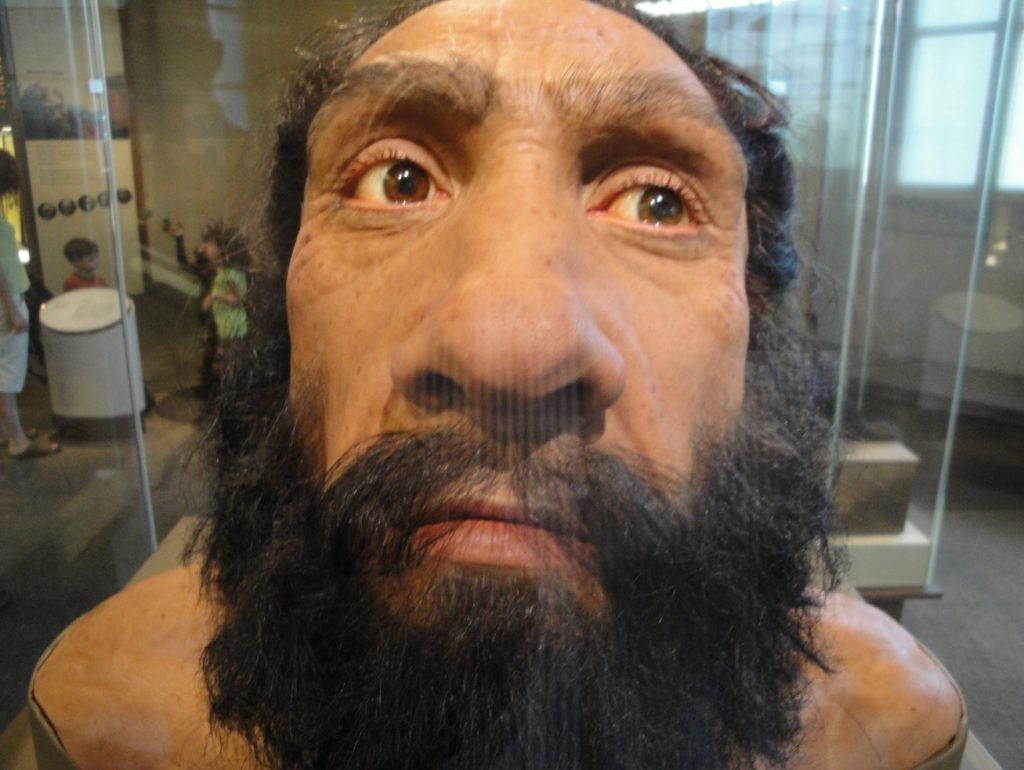People like me like facts. I like to quote John Adams who said. “Facts are stubborn things; and whatever may be our wishes, our inclinations, or the dictates of our passion, they cannot alter the state of facts and evidence.” Or even more practical from Daniel Patrick Moynihan, “Everyone is entitled to his own opinion, but not his own facts.” But facts are not what they used to be. The latter quote illustrates that. It is likely that Moynihan did not say that, or at least he did not originate it.
I was a nerdy kid. I used to read the “World Almanac” and then I would dazzle/baffle/bore my friends with my ersatz erudition. Knowing lots of facts was seen as a sign of intelligence back in the halcyon days of my youth. In the intervening time, however, I have noticed that facts change. Some change is unsurprising. Populations grow and cities change. The facts of these things are ephemeral by nature. But I have seen lots of hard realities change. I used to know a lot about dinosaurs. Many of those facts are now wrong, as are many things I learned about biology, ecology and even physics. Textbooks full of “facts” written in the 1950s are now obsolete and these were supposed to be the hardest of all hard facts, the product of our proud science. Our current “facts” are unlikely to do age any better.
The fact about facts is that they often come with an expiration date and they do not travel well. Brazilians credit Santos Dumont with inventing the airplane in 1906. An airport in Rio is named after him. Americans know the Wright Brothers did it three years earlier. Both things can be “facts” because the fact about facts is that they are usually not facts, but rather constructs that most people in a particular time and place agree should be true. Worse yet, what makes a “fact guy” like me profoundly dejected is that we are leaving the “age of facts” and entering or reentering an age when what we know is more fluid and open to interpretation.
Facts as we know them today cannot exist is a mostly illiterate society and did not really exist at all until the invention of the printing press. Let me be clear. I am not saying that truth did not exist, but facts, in the sense of a checkable specific requires writing. Without something in writing, you have to depend on human memory, which is notoriously mutable. Even when people are trying to tell the whole truth, they will get “facts” wrong. Worse yet, human memory changes in response to changing conditions and requirement. Memory is not like a book or a movie. It is not stored in your brain as a file. Instead, you have to recreate memory each time you want to use it. Past events, present conditions and future aspiration mix, so your memory of things past isn’t only about those things past.
This is why oral history – as history – is not worth the paper it is printed on and also why oral history tends to seem more logical than the real thing and makes a better story. Especially if it has passed through many minds and maybe many generations, the stories have been rationalized and coordinated with prevailing cultural norms. Legends are always more entertaining than the facts.
Thanks to Internet and greater diversity of our populations, we are reentering the age of legend, as opposed to fact. We left the age of legend – at least in the West – when Gutenberg’s invention became widespread. But if printing created the concept of fact, how can the much more widespread use of the equivalent of the printed word destroy it?
The Internet “printed word” is not the same thing as a word on paper. The Internet word is mutable and often anonymous. A printed word on paper has a source that you can find. There is a publisher, who you can trust … or not. Whether or not you trust the source, you can judge it. Furthermore, there are a limited number of publishers. Finally, your book will not change if the author changes his mind. This is not true of other sources.
George Lucas and Steven Spielberg have changed aspects of “Star Wars” or the Indiana Jones films to fit in better with their later films or with changing societal mores. I saw “Return of the Jedi,” formerly Star Wars #3 now #6 in the eponymous Saga. I remember the original with the ghost of Darth Vader. He was an old, bald guy. Now he is the young long-haired actor who played Darth Vader in the prequels. Lucas claims he had the whole idea thirty or forty years ago and he altered the historical record to support his claim. (The “first” three are really crappy, BTW, and I can well understand why Lucas feels the need to support them any way he can.)
You really cannot tell for sure what they have done if you have no comparison. I rely on my imperfect memory. Others have the concrete “proof” of the picture on the screen. (Ironically, this is exactly what the dystopian totalitarian state did in George Orwell’s 1984. Ingsoc (English Socialism in newspeak) theorized that all knowledge belonged in collective mind of the Party and they have had right to change history as they change their collective mind. “He who controls the present, controls the past. He who controls the past, controls the future.” Winston’s (the main character) job was to systematically alter the past to fit the current needs of the party. But in those days, he had to physically destroy paper.)
Of course, you still can check in some cases. For example, on a recent episode of “Glee” (which Chrissy likes, not me) I noticed that when they sang “I feel Pretty” from West Side Story, they sang that “I feel pretty and witty and BRIGHT.” In the original, Maria feels “Pretty and witty and GAY.” The word didn’t mean homosexual back then. Modern writers feel the need to go with the PC meaning rather than the dictionary.
On the other hand, I have a copy of the “Decline and Fall of the Roman Empire” that my mother gave to my father before I was born. When I look at those yellowed pages, I am morally certain that nobody has altered a word to make it fit in better with current prejudices.
Most of what the Internet has done to spread information is good, although my own results are mixed. I feel a little less smart today because of it. My encyclopedic knowledge used to be admired. Now my son just tells me that I have “wiki-intelligence” which he can duplicate or surpass on his computer. He is right. But I do worry about matters of fact.
Sometimes on the Internet, I find things that are just wrong. It is especially true when somebody asks a question and then chooses the “best answer”. Sometimes my old books, written and printed closer to the fact in question, tell me a different thing. The Internet makes difficult or almost impossible the formerly reliable, if painstaking, process and analyzing texts. Not only cannot you find the physical source, you often cannot tell where the source comes from and have no way of even guessing whether it has been altered.
I studied historiography many years ago. Those who know what that is, know that it is not history. It is the study of the creation of history. In one of my seminars, we studied Polybius and not only traced back to his sources but also looked forward to historians who used Polybius as a source, sometimes w/o even knowing it. It was a truly fascinating few months and it made an impression on me that lasted (so far) a lifetime. I learned that the weight of sources is less important than their lineage. Some of the most elegant narratives are just not based on reliable sources and it doesn’t matter how popular they are or how logical they sound. They are wrong. If you find the weak link in the source, you don’t have to argue anymore about details. All those analysis that depend on the source are wrong too. Of course, nobody will really believe you if the story is good. The legends are more fun.
Somebody might even “fact check” you using one of those weak link sources.







